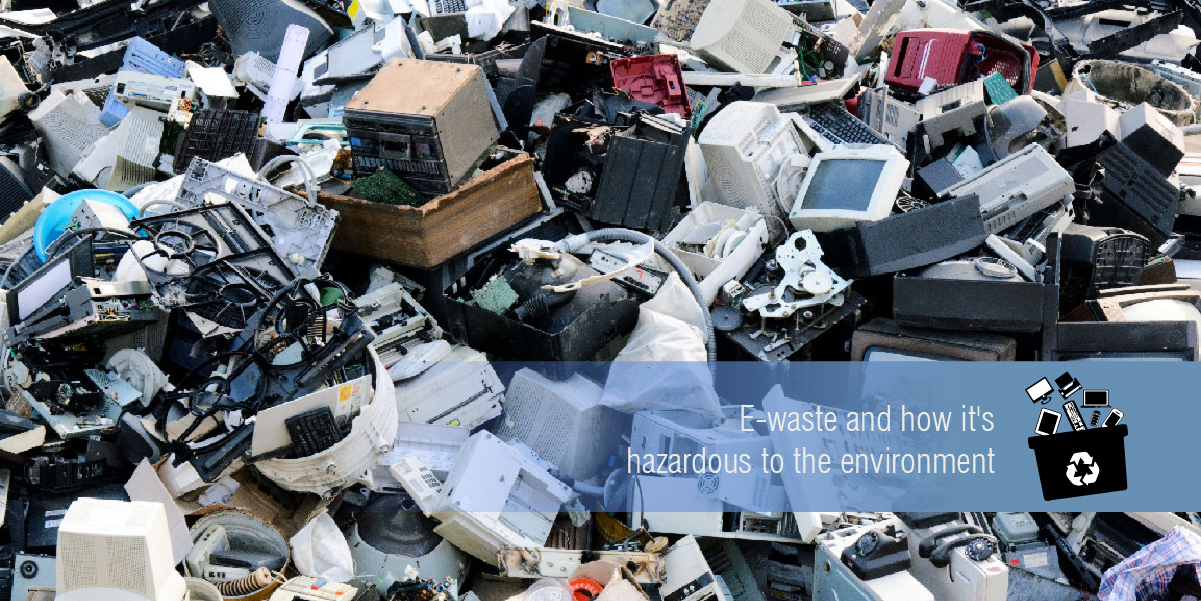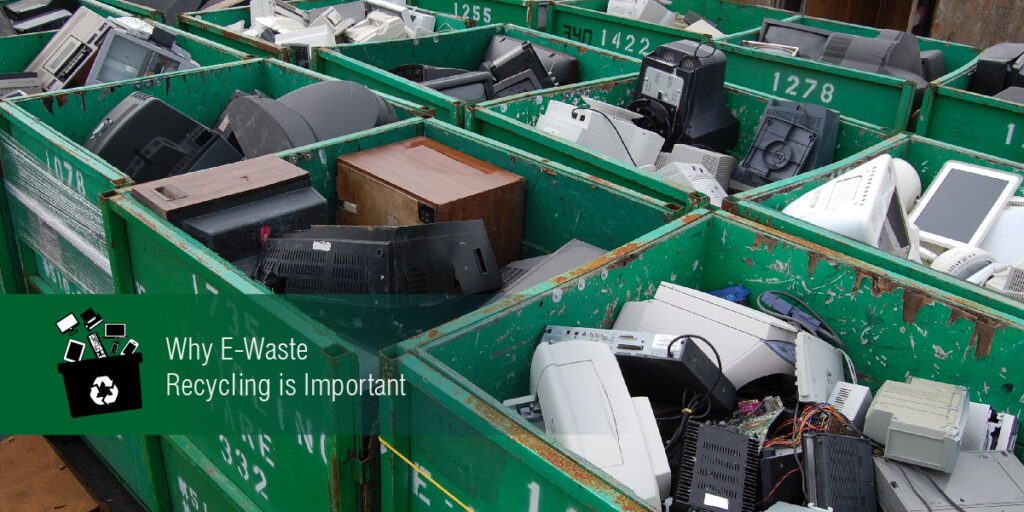If you are reading this, there is a good chance that you currently own at least one electronic device (Computer, TV, Copy machine, Printer, Fax machine) and probably more. Electronics rule our lives. No matter how much we try to limit our exposure to these devices, they are all around us in the workplace and the home. But, unfortunately, these devices are only designed to live for a short amount of time.
This article will discuss what e-waste is, how it’s hazardous to the environment, what devices are classified as e-waste, where you can dispose of your old electronics, and how an ITAD company can help.
What Do You Mean E-Waste?
First, let us define what we mean by “e-waste.” E-waste is any device that contains electronic components and will no longer function because of those parts or because other parts have worn out.
Electronic devices are made up of many different components and materials. Some examples of electronic components include:
- Printed Circuit Boards (PCBs)
- Cathode-Ray Tubes (CRTs)
- Glass Or Plastic Screens
- Silicon Chips
- Silver Solder
Materials commonly found in electronics include:
- Lead
- Beryllium
- Mercury
- Cadmium
- Plastic
- Copper
- Gold
As long as these items are used or stored correctly, they should not risk individuals or the environment. However, when they are simply thrown away in the garbage, they can be hazardous.
Why E-Waste Recycling is Important
Electronics pose a unique problem because they are made up of many different components and materials. If you break an electronic device in your hand, it is unlikely that any one particular material will be released into the environment. However, when electronics are disposed of improperly or not recycled, they can make their way into landfills, where they can ultimately leach into the earth.
This can be harmful to humans and animals that contact the soil or water at these locations. It can also pollute our air from toxic dust released when the electronics are burned in incinerators. Additionally, there are many valuable materials found within electronic devices which are not recycled properly.
For example, gold and silver can be found in many electronic components. Gold is precious because it does not corrode or melt quickly and can be reused in new devices. Silver will oxidize to create an insulating layer which simply means that you would have a device full of dust after many years of storage.
So Why Are Electronics Disposable?
It’s important to note that electronic devices are typically designed with end-of-life in mind. As a result, companies try to use the smallest amount of material possible without compromising the device’s functionality.
While this allows for new products to be developed and released to consumers, people also have to buy new versions of products as they become available constantly.
Recycle Electronics Responsibly
Disposing of electronics properly is the best way to avoid harming yourself, others, and the environment. For example, you should never throw old devices in the garbage because they will end up in landfills where they pose a risk to the environment and anyone who comes into contact with them. If you have electronics that no longer work, it’s best to take them to an e-waste recycling facility so they can be safely disposed of or broken down into their components.
These facilities are designed to protect people’s health and reduce the amount of environmental pollution that occurs when electronics are disposed of or burned in incinerators. Larger companies can also employ the help of an ITAD company like Avail Recovery to help with E-Waste recycling.
Here are some tips on how to recycle old electronic devices safely:
- Never use your bare hands to remove parts from an electronic device.
- Know what to look for when buying a new electronic device.
- Know what items are considered e-waste.
- Don’t wait to replace old electronics with newer models.
- Know how to package items for shipping to a recycling facility
Electronics disposal is an important issue for everyone who purchases new electronics because it protects the health of you and those around you.
Avail Recovery Makes E-Waste Recycling Simple
Companies that specialize in ITAD can help you with the recycling process, so there is no need to break down electronics yourself or take them to a landfill where they could pose a risk.
Avail Recovery can safely dispose of all kinds of electronics, including mobile phones, laptops, tablets, and more.
Avail also offers Asset Recovery and Buyback programs to help you recover value from your old, outdated equipment. Contact Avail Recovery today to learn about our E-Waste recycling services so you can get safely rid of old electronics.

